If your car jerks or stumbles when pressing down on the gas pedal to accelerate, but the check engine light isn’t illuminated on the dashboard, it can be frustrating trying to pinpoint the cause. The check engine light is meant to alert you to any issues with the engine or emissions systems, but clearly, something else is amiss.
| Cause | Description |
|---|---|
| Dirty Air Filter | A clogged air filter can’t supply the correct air/fuel mixture, leading to jerking and hesitation during acceleration. |
| Faulty Fuel Injectors | Malfunctioning or clogged fuel injectors can cause misfiring and jerking motions, especially when accelerating. |
| Bad Spark Plugs | Worn out or fouled spark plugs can result in incomplete combustion and jerking or stumbling, particularly under higher load when accelerating. |
| Vacuum Leaks | Leaks in the vacuum hoses mean unmetered air is entering, causing an incorrect air/fuel ratio and jerky acceleration. |
| Failing Catalytic Converter | A clogged or failing catalytic converter can disrupt exhaust flow and cause jerking and loss of power during acceleration. |
| Bad Fuel Filter or Pump | A clogged fuel filter or a weak fuel pump failing to provide adequate fuel pressure and volume can lead to jerking during acceleration. |
| Sensor or Computer Fault | Intermittent sensor or computer faults not severe enough to trigger the check engine light can also cause jerking during acceleration. |
While the check engine light is helpful, there are plenty of other potential problems that could cause accelerating issues while leaving that dashboard indicator dark. Here are some of the most common culprits to investigate:
Dirty Air Filter
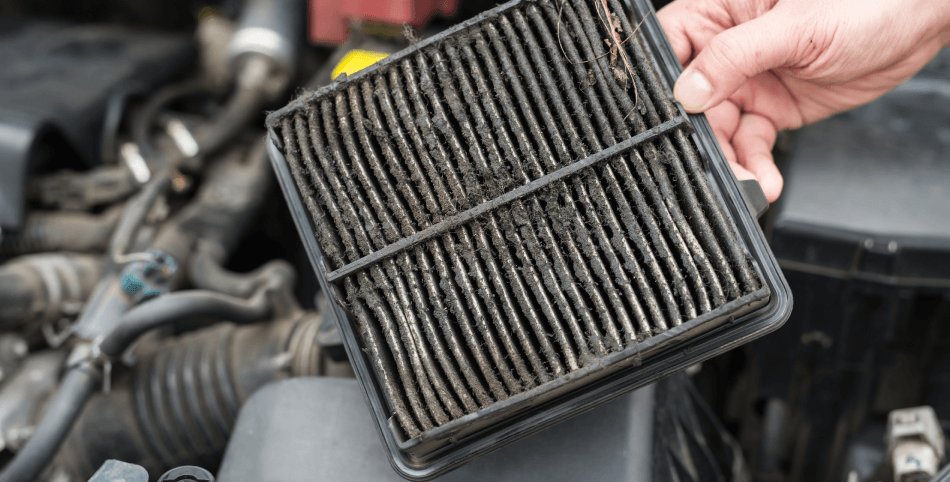
The air filter keeps dust and debris out of the engine. When it becomes clogged, it can’t supply the correct air/fuel mixture, leading to jerking and hesitation during acceleration. Replacing a dirty air filter is an easy and inexpensive fix.
Faulty Fuel Injectors
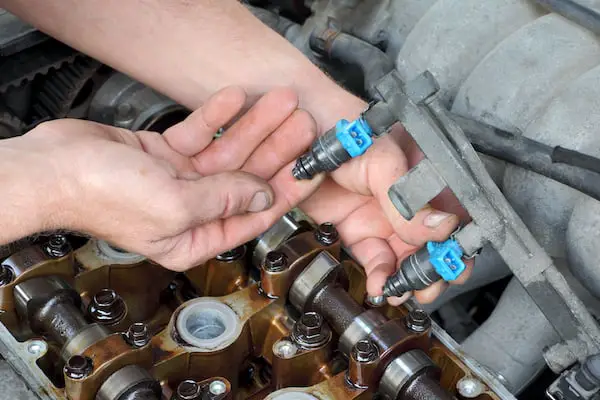
The fuel injectors deliver the proper amount of fuel to the cylinders for combustion. If one or more injectors are malfunctioning or clogged, it can cause misfiring and jerking motions, especially when accelerating. Injectors may need cleaning or replacement.
Bad Spark Plugs
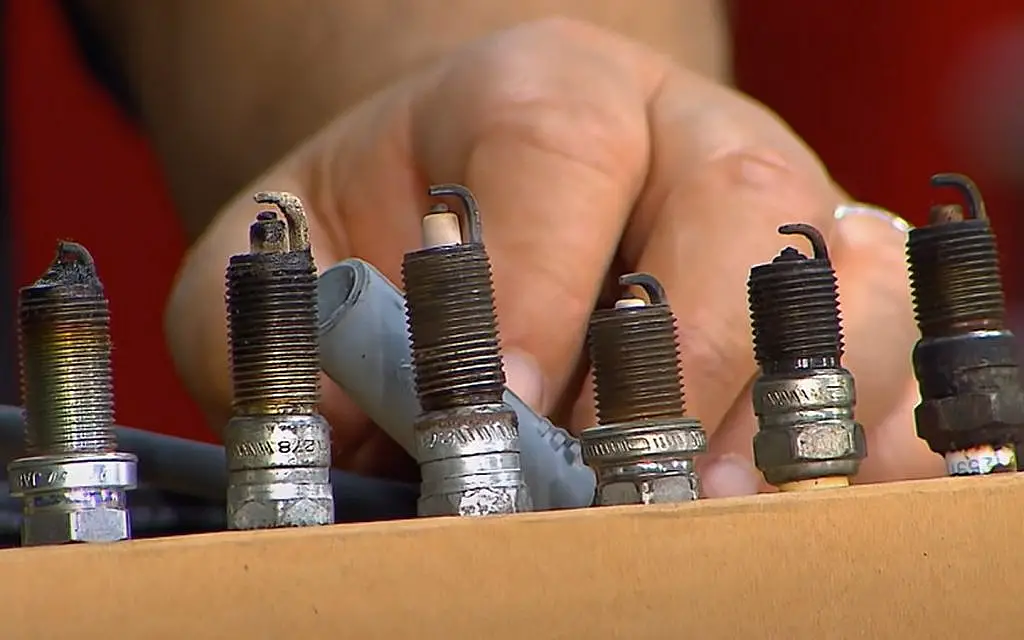
Spark plugs provide the spark to ignite the air/fuel mixture. If they are worn out or fouled, it can result in incomplete combustion and jerking or stumbling, particularly under higher load when accelerating. Spark plugs require periodic replacement.
Vacuum Leaks
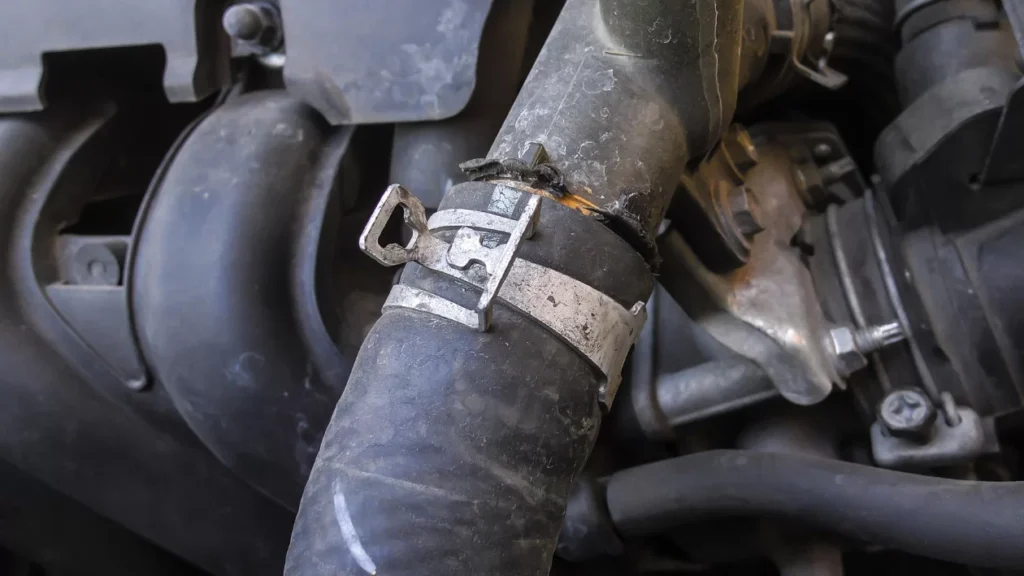
The engine has a series of vacuum hoses that route filtered air. Any leaks in these hoses mean unmetered air is entering, causing an incorrect air/fuel ratio and jerky acceleration. Replacing any cracked or damaged vacuum hoses fixes this.
Failing Catalytic Converter
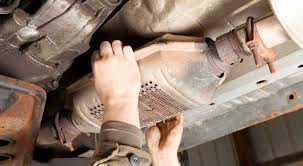
While a faulty catalytic converter can sometimes trigger the check engine light, it may not always do so immediately. A clogged or failing catalytic converter can disrupt exhaust flow and cause jerking and loss of power during acceleration.
Bad Fuel Filter or Pump
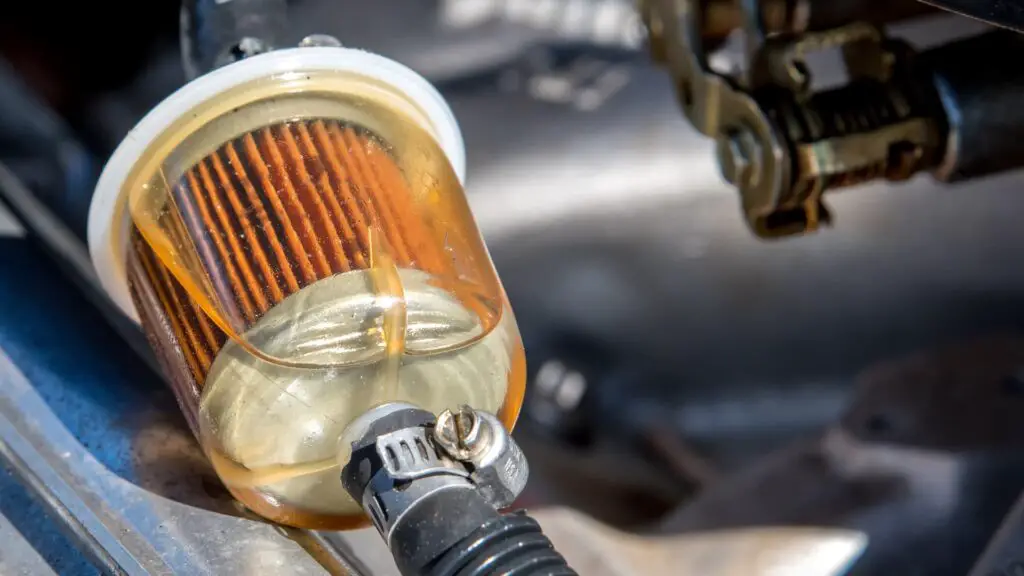
If you have ruled out the above possibilities, it could point to an issue with the fuel delivery system, such as a clogged fuel filter restricting flow or a weak fuel pump failing to provide adequate pressure and volume.
While many acceleration issues are caused by worn engine components or maintenance needs, there could also be an intermittent sensor or computer fault not severe enough (yet) to turn on the check engine light.
Also Read:
- When To Change Your Brake Fluid? How Much Does It Cost?
- XPeng Introduces G6 580 Plus: Affordable Luxury EV SUV
- 2025 Buick Enclave: Redefining Luxury with performance
If you can’t easily identify and resolve the cause of your car’s jerking during acceleration, have a professional mechanic hook it up to a diagnostic scanner to check for any fault codes and thoroughly inspect the vehicle’s fuel, air, and ignition systems.


[…] Car Jerks When Accelerating? Here’s What Could Be Wrong […]
[…] Car Jerks When Accelerating? Here’s What Could Be Wrong […]